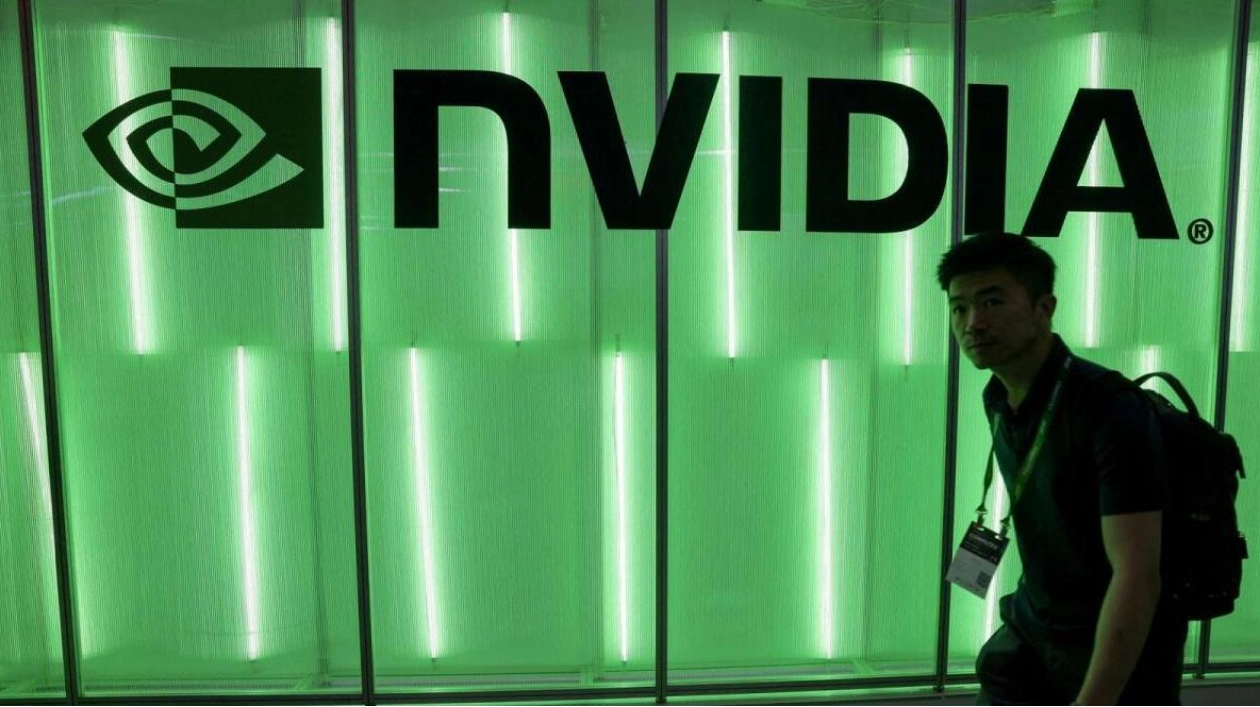Nvidia shares recovered slightly in premarket trading on Thursday, overcoming an initial decline as investors remained optimistic about the chip giant's growth potential, despite a forecast that did not meet high expectations. The company's shares fell by 3.4 percent after it predicted third-quarter gross margins that might miss market forecasts and revenue that was largely in line, leading to a selloff in chip stocks including Broadcom, Advanced Micro Devices, and Arm. Nvidia has consistently exceeded Wall Street's estimates for several quarters due to strong demand for AI chips, encouraging investors to rely on the company's tendency for exceptional forecasts. The stock's resilience has been a key factor in the market's rally over the past year, leading to forecasts that some believe are unattainable.
"They beat, but this was one of those situations where expectations were so high. I don't know if they could have had a good enough number for people to be happy," said JJ Kinahan, CEO of IG North America and president of online broker Tastytrade. The forecast came after robust second-quarter earnings that surpassed Wall Street expectations, and the AI leader announced a new $50 billion share buyback. Shares of other chip companies also regained some ground, trading down between 0.2 percent and 1 percent. US-listed shares of TSMC, Nvidia's chip manufacturing partner, were marginally down. TSMC's shares on the Taiwan bourse also closed lower as Asian tech stocks followed Nvidia's weakness, with South Korea's KOSPI index hitting a two-week low.
"Investors want more, more, and more when it comes to Nvidia," said Dan Coatsworth, investment analyst at AJ Bell. "It seems investors might not have taken the average of analyst forecasts as the benchmark for Nvidia's performance, instead opting for the highest end of the estimate range as the hurdle to clear." Analysts had forecast an average second-quarter per-share profit of 64 cents, with the highest estimate being 71 cents. Nvidia reported earnings of 68 cents per share. Big Tech stocks appeared unaffected by Nvidia's results, with shares of Google-parent Alphabet, Meta Platforms, Amazon.com, and Apple all rising between 0.4 percent and 1.5 percent.
"Nvidia is seen as a bit of a bellwether, but despite the numbers being a bit weak, I think people are just sort of happy that it's out of the way. The long-term AI story is still intact. It's just a bit of a relief that the numbers weren't disastrous," said Ben Barringer, analyst at Quilter Cheviot. This comes as investors have also become concerned about increased spending by Microsoft, Alphabet, and other major players in the race to dominate emerging AI technology. Microsoft and Alphabet's stocks remain down since their reports last month. Nvidia delaying the production ramp-up of its next-generation Blackwell chips until the fourth quarter was not a major concern, analysts said, with strong demand for its current-generation Hopper chips.
Nvidia also disclosed it had received information requests from regulators in the US and South Korea, adding to inquiries from the EU, UK, and China, raising concerns about increased regulatory scrutiny. "After the DOJ win over Google, large-cap tech has got to be more aware of regulatory intervention... historically, the threat was a little bit toothless. But now that they've got this win over Google, investors have to pay a bit more attention to it," Barringer said. The muted response to Nvidia's earnings report could influence market sentiment as it heads into a historically volatile period. The S&P 500 has averaged a 0.8 percent decline in September since World War Two, according to CFRA data. Investors are also monitoring next week's US employment report for signs of labor market recovery after early August's stock market turbulence.
Optimism about AI technology, partly fueled by Nvidia's rapid growth, has driven gains on Wall Street over the past year. However, confidence in this rally has recently wavered following an earnings season that saw investors penalize tech companies whose results did not justify high valuations. Nvidia forecast revenue of $32.5 billion, plus or minus 2 percent, for its fiscal third quarter, compared to analysts' estimates of $31.8 billion, according to LSEG data. This revenue forecast suggests an 80 percent growth from the year-ago quarter. The Santa Clara, California-based company expects an adjusted gross margin of 75 percent, plus or minus 50 basis points, in the third quarter. Analysts had forecast an average gross margin of 75.5 percent. Nvidia's stock fell 2.1 percent in Wednesday's session before its report. It remains up about 150 percent so far in 2024, making it the top performer in Wall Street's AI rally. The stock was valued at 36 times earnings ahead of its quarterly report, lower than its five-year average of 41. The S&P 500 is trading at 21 times expected earnings, compared to a five-year average of 18.






